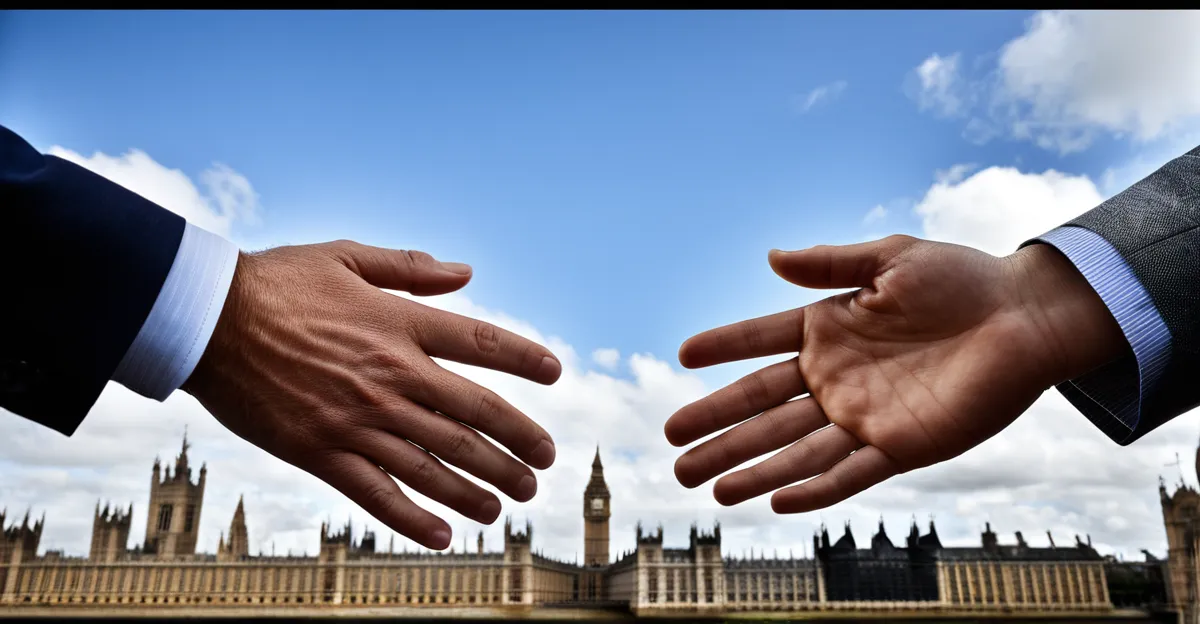Major Recent UK Developments Influencing International Relations
Recent UK political events have significantly reshaped the country’s stance on the global stage. Among the most pivotal is Brexit, which continues to define the UK’s relationship with the European Union and beyond. Since the UK formally left the EU, there have been numerous shifts in government policies focused on trade, migration, and regulatory standards, all of which directly impact international relations.
The government has actively pursued new trade negotiations to replace and expand beyond EU agreements. These trade talks are crucial for securing economic partnerships with non-EU countries, affecting global market access and bilateral cooperation. The recent UK developments also include reforms aimed at strengthening sovereignty over domestic legislation, which affect commitments to international treaties and organizations. This recalibration of policies signals an evolving approach to engaging with both traditional allies and emerging global powers.
This might interest you : What role does the UK play in international peacekeeping?
In the current international context, these developments are highly relevant because they influence how the UK is perceived as a partner. The country’s robust moves toward independent trade policies, combined with ongoing diplomatic engagements, display a strategic effort to maintain global influence despite departing a major economic bloc. This period of transition underscores the UK’s ambition to redefine its role, enhance bilateral relationships, and contribute to the shifting dynamics of international affairs.
Diplomatic Relations and Multilateral Engagements
Recent UK developments have brought substantial changes to the country’s diplomatic relations and multilateral engagements. Following Brexit, the UK’s diplomatic approach with major global powers has evolved to emphasize independent action while maintaining strategic partnerships. The government is actively redefining its UK foreign policy to balance sovereignty with the necessity of global cooperation, especially within key global alliances like NATO and the United Nations.
Also to discover : What Are the Future Prospects for the UK Post-Brexit?
The UK’s role within international organisations has shifted to reflect its new status outside the European Union. Yet, the UK remains deeply engaged in multilateral institutions, seeking to influence global governance through renewed commitments and leadership roles. This transition underscores a strategic pivot from regional EU frameworks toward a broader global stage presence, aiming to preserve its influence in international diplomacy.
Historically, the UK has been an active participant in multilateral forums, with diplomatic initiatives rooted in both post-WWII European integration and Commonwealth ties. The recent UK political events mark a departure from EU-centric collaboration toward a diversified network of alliances and partnerships. This recalibration is central to ongoing international relations, as the UK endeavors to sustain a prominent position in world affairs by leveraging its diplomatic legacy while adapting to contemporary geopolitical realities.
Implications for International Trade and Economic Partnerships
Recent UK developments have profoundly transformed its approach to international trade and economic partnerships, especially in the post-Brexit context. The UK’s withdrawal from the European Union necessitated a major overhaul of trade policies, resulting in a series of UK trade deals aimed at fostering new economic ties beyond traditional European markets. These agreements prioritize expanding access to emerging economies and Commonwealth nations, reflecting the government’s strategic shift to diversify partnerships and strengthen economic resilience.
One key impact on the post-Brexit economy is the evolving regulatory landscape, which new trade deals must navigate carefully to avoid barriers that could disrupt trade flows. By negotiating tailored agreements that suit its national interests, the UK aims to reduce tariffs and streamline customs procedures, enhancing competitiveness on the global stage. However, complexities remain, especially concerning trade with the EU, where regulatory divergence has introduced additional checks and potential delays in goods exchange.
These recent UK developments also affect international partners differently in the short and long term. While some countries benefit immediately from preferential access, others face adjustments due to changing tariff systems and standards. The long-term economic consequences hinge on the UK’s ability to secure stable, comprehensive trade agreements that balance sovereignty with integration into global supply chains. Overall, the dynamic trade landscape underlines the critical role of these UK trade deals in shaping the future of global trade impact and economic cooperation worldwide.





